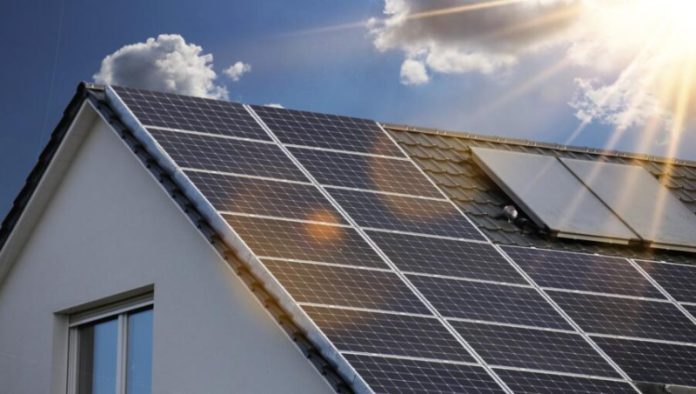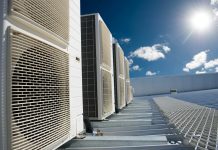Solar energy is not only an investment in our planet’s future, but it can also be a financially smart choice for homeowners and businesses alike. While the benefits of solar energy are clear, understanding how to finance a solar panel system can feel overwhelming. At Solares Energies, we believe that the path to sustainable energy should be accessible and transparent.
In this comprehensive guide, we’ll explore various financing options, including grants, loans, and incentives, to help you make an informed decision.
Grants: Free Money for Your Solar Investment
Grants provide an excellent way to reduce the upfront cost of a solar panel system, and they often come from governmental agencies or private organizations committed to promoting renewable energy. These grants are typically provided as a one-time payment that directly offsets the purchase and installation costs.
- Federal Grants: Many countries offer federal grants for renewable energy projects. It is advisable to check with the relevant government department to understand the available programs and eligibility criteria.
- State or Regional Grants: Local governments may also have specific grants to encourage renewable energy adoption within their jurisdictions.
- Private and Non-profit Grants: Occasionally, non-governmental organizations and private foundations offer grants for solar energy projects. These may target specific groups, regions, or types of installations.
Loans: Borrowing to Build a Sustainable Future
For those who may not have the available funds to pay for a solar system upfront, loans can be an attractive option. Various institutions provide loans specifically designed for solar panel purchases and installations.
- Solar-Specific Loans: Some banks and credit unions offer loans explicitly tailored to solar energy projects. These loans often have competitive interest rates and flexible terms.
- Home Equity Loans: If you have equity in your property, you may qualify for a home equity loan to finance your solar panel system. This option generally offers lower interest rates compared to personal loans.
- Commercial Loans: Businesses looking to invest in solar energy might explore commercial loans tailored to meet their specific needs.
Incentives: Reducing Costs Through Tax Credits and Rebates
Incentives play a vital role in making solar energy financially accessible. Governments and utility companies often offer various incentives to encourage the adoption of renewable energy.
- Tax Credits: Some governments offer tax credits for purchasing and installing solar panels. These credits can significantly reduce the overall cost by allowing you to deduct a percentage of the installation costs from your income taxes.
- Rebates: Rebates are direct discounts or reimbursements that lower the initial purchase price. They can come from government agencies, utility companies, or manufacturers.
- Feed-in Tariffs and Net Metering: These incentives allow you to earn money by selling excess energy back to the grid. While the structures and rates may vary, they can provide ongoing financial benefits.
Leasing and Power Purchase Agreements (PPAs)
Another way to access solar energy without the upfront costs is through leasing or Power Purchase Agreements (PPAs).
- Leasing: Solar leasing allows you to rent the solar panel system from a provider like Solares Energies. You pay a fixed monthly fee and enjoy energy savings without the responsibility of owning the system.
- PPAs: With a PPA, you agree to purchase the energy generated by a solar system located on your property but owned by a third party. You pay for the energy at a predetermined rate, often lower than traditional utility rates.
Can I add battery storage to my solar panel system?
Yes, adding battery storage to your solar panel system is not only possible but often a wise decision. A battery storage system allows you to store excess energy produced by your solar panels during the day, which you can then use during the evening or when the sun isn’t shining. This ability to store energy helps in maximizing the use of your solar panels and provides greater energy independence.
Battery storage systems can be integrated into both new and existing solar panel installations. Several types of batteries are suitable for solar energy storage, including lithium-ion and lead-acid batteries. Your choice might depend on various factors such as budget, energy needs, and space availability. It’s essential to consult with a solar energy expert, like Solares Energies, to understand the best options for your system and ensure that the battery is installed correctly and safely.
If you’re looking for the best Solar Panels Marbella has to offer, then look no further than Solares Energies.
How much are solar panel systems in Spain?
The cost of solar panel systems in Spain varies widely depending on the size of the system, the type of panels used, installation complexity, and other factors. The price for a residential solar panel system in Spain might range from €4,000 to €10,000 for a standard system. Commercial installations or more extensive residential systems will likely be at the higher end of this range or even exceed it.
It’s essential to note that Spain offers various incentives and subsidies for solar energy, which can significantly reduce the overall cost. Additionally, long-term savings on energy bills should be considered when evaluating the investment in a solar panel system. Working with a reputable solar energy provider like Solares Energies can help ensure that you get a system that fits your needs and budget and that you are taking full advantage of available incentives and financing options.
What are solar panels?
Solar panels are devices designed to capture sunlight and convert it into electrical energy. They are made up of many individual solar cells, which are typically constructed from semiconductor materials like silicon. Each solar cell contains a positive and a negative layer, which together creates an electric field, like a battery.
When photons from sunlight hit the solar cells, they knock electrons loose from their atoms. These free electrons flow through the electric field, creating an electric current. This current, known as direct current (DC), is then channelled through an inverter to convert it into alternating current (AC), the standard form of electricity used in most homes and businesses.
Solar panels are often installed on rooftops or other sun-exposed locations to maximize their exposure to sunlight, and they can be linked together to create a system capable of generating significant amounts of electrical power. By converting sunlight into electricity, solar panels provide a renewable, environmentally friendly energy source that can reduce dependence on fossil fuels and decrease greenhouse gas emissions.
Top of Form
Financing solar panels is a multifaceted process, but understanding the available grants, loans, incentives, and alternative financing methods can empower you to make the right choice for your situation.
At Solares Energies, we are committed to guiding our clients through every step of their solar journey. From initial consultation and system design to financing options and ongoing support, our team of professionals is here to ensure that your transition to solar energy is seamless and rewarding.
Whether you are a homeowner aiming to reduce energy bills or a business striving for sustainability, we believe that solar energy should be within reach. If you want the best Solar panel installation Spain has to offer, then look no further than Solar Panels Spain.
Contact us today to explore the best financing options for your solar panel system and take a significant step toward a greener, more energy-efficient future.















